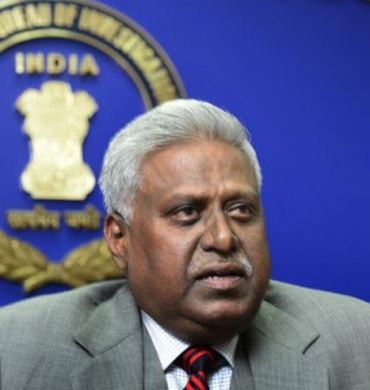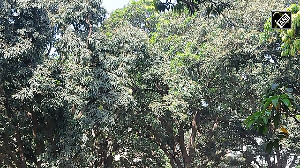 The exemption given by the government to the CBI appears to be have been guided by its desire to stop exposure of corruption which goes against the preamble of the RTI Act which aims to curb corruption, says former Central Information Commissioner Shailesh Gandhi.
The exemption given by the government to the CBI appears to be have been guided by its desire to stop exposure of corruption which goes against the preamble of the RTI Act which aims to curb corruption, says former Central Information Commissioner Shailesh Gandhi.
Advocate Prashant Bhushan has revealed the existence of a log showing the individuals who visited Central Bureau of Investigation Director Ranjit Sinha's residence before the Supreme Court hearing in the 2G scam case. It evidently shows that many persons against whom investigations were being conducted were frequent visitors to his house.
Some of them have visited his house a number of times, at times three times on the same day. Sinha has not denied the visits, but questioned how the diary came to Bhushan. He has even boasted according to a news report that 'It should be asked how such registers are reaching the petitioner because as far as the CBI is concerned, we are exempted from sharing information with individuals, even under the RTI Act.'
The Supreme Court has asked Bhushan to file an affidavit about the visitor's diary.
This is a curious turn of events. Bhushan has with this log book brought to the notice of the apex court and the nation that Sinha was meeting the scam accused regularly at his home. The Supreme Court should have asked Sinha to declare if most of the entries of the visitors to his residence were false.
If he contended that he was cosying up with the accused as part of his official duties he should show how this was reflected in his official records.
If the CBI gave information under the RTI it could have been shown whether the official records could establish some co-relation between these domestic visits to Sinha's residence.
The court should order the CBI to put all this in the public domain. There is a linked issue which should also engage the attention of the nation. The government, by a notification of June 9, 2011, suddenly exempted the CBI from the provisions of the RTI Act when the scams were tumbling out.
The Central Information Commission had stated in a detailed order the arbitrary action of the government without any reasons was clearly not as per the provisions of the RTI Act.
The CBI got an ex-parte stay on July 28, 2011. This stay gives no reasons at all, which violates Supreme Court judgments on an essential feature of any judicial order.
Consequently, despite a detailed order giving reasons why the exemption given to the CBI by the government was not in consonance of the law, the CBI refuses to give any information under the RTI. This refusal is based on a stay order of the high court which gives no reasons! This case continues to languish in the courts.
There are a large number of cases where the Information Commission's orders to the government agencies are being stymied by getting stay orders in courts, many of which are given ex-parte and without providing any reasons.
The exemption given by the government to the CBI appears to be have been guided by its desire to stop exposure of corruption which goes against the preamble of the RTI Act which aims to curb corruption.
This revelation and incident provides an opportunity to the nation to curb corruption and improve transparency if we take the following steps:
- Ranjit Sinha should be immediately asked to state whether the contents of the visitors' log presented by Prashant Bhushan are substantially wrong.
- If they are not wrong, Sinha should show evidence that the meetings with those under investigation were recorded in his official papers.
- The courts must stop giving orders staying implementation of transparency orders without applying their minds to these and giving the reasons for such stays.
- The present government must recall the perverse notification of June 9, 2011.









 © 2025
© 2025